Politicon.co
Is Belarusian independence under threat?
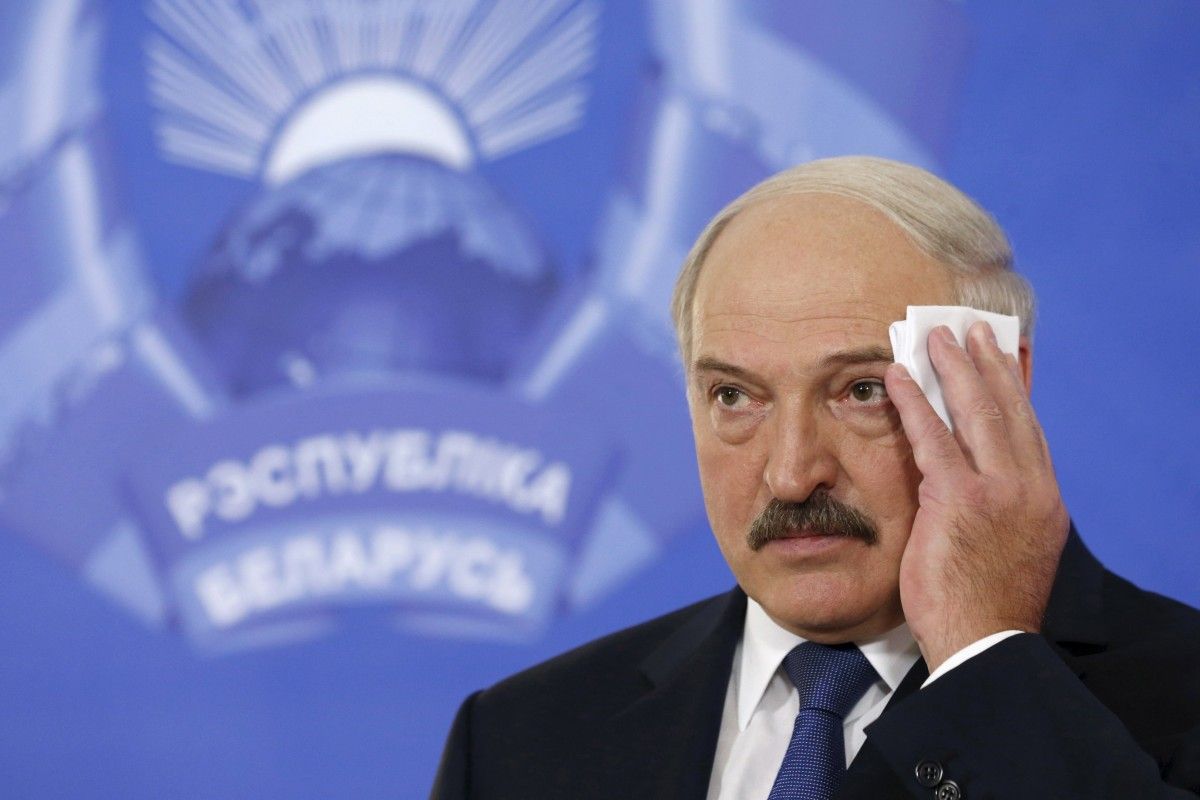
The deep frictions that appeared in the relationships between Moscow and Minsk in the late 2018, led many observers to suggest that the latter may succumb to increasing pressure from the Kremlin and even have to compromise its independence. A Belarusian expert agreed to respond to our questions on this complicated problem.
What is the gist of Belarusian policy of rapprochement with the West that has been visible since 2014? What important achievements has this policy brought?
This question is frequently asked by various experts, when they try to get a comprehensive understanding of the current Belarusian politics. The answer, which is frequently given, is that the Belarusian authorities realized the Russian danger after the Crimea and are searching a counterbalance to the Russian influence in the region. I would not agree with such an explanation. The Ukrainian crisis has become rather an instrument than a real cause for the Belarusian policy of rapprochement with the West.
First of all, I am absolutely sure that the current Belarusian leadership, as well as the current Russian leadership, have never considered an occupation of Belarus or any of its part, including the implementation of the Ukrainian scenario in Belarus. Contrary to that, president Alexander Lukashenko faced numerous attempts to organize pro-Western revolutions in Belarus. So, this rapprochement would become possible only if Lukashenko suddenly believed in the changes in the Western policy towards Belarus. Definitely, these changes occurred only after the Ukraine. The Belarusian authorities have always wanted to have close relations with the West, particularly, if it guarantees the power for Lukashenko and his family. Moreover, the previous experience with Russia’s failures to support pro-Russian regimes (in Iraq, Libya, Yugoslavia etc.) has only strengthened Lukashenko’s conviction that in order to keep the absolute power for his family he has to reach a deal with the West.
Many experts explain the Belarus’s interests in rapprochement with the West to be driven by the Western money. There is only little truth in this thinking. A simple arithmetical comparison between Russia- and West-provided aid can dismantle such claims. Yes, the West gives money and it could be a significant amount but it will never sponsor the Lukashenko’s regime on the scale Russia does and (what is also very important) on the same conditions with Russia. Lukashenko and the highest Belarusian elites want security guarantees from the West – to their power, to their money, which is more and more invested into the Western economies, to their families who like living in the Western countries. The wealth issue has become extremely important after the Arab spring when Lukashenko had almost lost his assets in Libya and risked to lose them in Syria. This crisis contributed to his conviction that no country in the world except the U.S. could guarantee the safety of his money and his regime.
So, if we speak about the most important achievements of this rapprochement, we should limit them with new embassies, contacts or never ending negotiations. The primary goals include transferring the Belarusian elites’ assets into the West and get guarantees for the regime- and they have been achieved only partly. Belarus has found strong support from the UK but has not achieved an agreement with the USA.
What is President Lukashenko’s vision of Belarus in the future? How does he see its long-term relationship with Moscow?
It is a very complicated question. A lot of experts believe that Lukashenko does not have any vision of Belarus in the future at all. Others point out to the fact that the president has tried to make some steps towards formation a power change mechanism within his family. The reason why these attempts have failed are still not clear – whether it was Russia’s pressure or his own reluctance to think about such things. I think that the truth is somewhere in between. I do not doubt that Lukashenko wants to be a ruler of an independent, respected and quite prosperous country. The actual question is rather whether these wishes are underpinned by a strategic vision since the ways of its implementation are completely unclear. The long-term relationship with Moscow has a direct link to the question of a strategic vision. The economic and political model created by Lukashenko is based on Belarus’s economic and political dependence on Moscow. The ideal situation for him is to return to the situation of early-mid 2000s. Today, when Russia has already changed this model, Lukashenko has not yet found an alternative strategy to deal with Kremlin.
What do you think about the events unfolding around the “Union state” of Russia and Belarus in the last months of 2018? How do you estimate President Lukashenko’s demarche during the EAEU Summit in Saint Petersburg and his later “U-turn”?
In order to understand the recent discussion on the ‘Union State’ we should understand very well the goal behind its foundation. Lukashenko sincerely hoped to take the place of Boris Yeltsyn as the president of the Union State. Today, these ambitions are completely irrelevant. However, besides this goal the both states needed to harmonize their economic, political and social relations, to provide for their deep integration. In this aspect I completely disagree with the opinion that the ‘Union State’ does not exist because its declared official goal (comprehensive integration) is not achieved. The ‘state’ turned out to be but the deep integration with Russia, which was and still remains vital for Belarus, was implemented. We cannot imagine how the Belarusian economy will function if the agreement on the Union state will be suddenly denounced. The problem is that these vital integration issues are linked on the paper to the idea of the full political integration into one state of the kind of the USSR. I think what Russians are trying to do now is to convert the integrational issues from the Union state into the Eurasian integration, so they are trying to separate different aspects of the agreement. Belarus benefits a lot from the Union state and it wants to continue receiving these benefits. Unfortunately, Russians can say- and they do say- that these benefits are linked to other obligations, including united currency, presidency etc. Actually, Belarus understands this problem very well and has already started to revise the agreement in order to secure its benefits within further Eurasian integration.
The issue on gas and petroleum prices is the key issue for Belarus in this integration. During the EAEU Summit in Saint Petersburg in December 2018, Lukashenko publicly opposed Putin and demanded the same gas prices as for the Smolensk region (in 2018 Belarus paid 129 USD per 1000 cub.m., Lukashenko demanded a price reduction to 70 USD per 1000 cub.m.). What we see is Lukashenko’s attempts to be an active part of this process of conversion of the Union state into the Eurasian integration. The problem is that Putin can put forward other aspects, for example, the price for gas for the Belarusian consumers or who gains most of the current transactions framework.
Do you think the latest crisis has been qualitatively different from all the misunderstandings and frictions that have been quite numerous, especially during the last 10 years? What kind of personal relationship do Presidents Lukashenko and Putin have now?
I would like to start from the last part of the question. Everybody knows about a very bad personal relationship between Lukashenko and Putin. However, the long history of their interaction proves that the fact of bad relationship does not have a crucial effect on the Belarus-Russia relations. I agree that the latest crisis has been qualitatively different from all the misunderstandings and frictions that have been quite numerous, especially during the last 10 years. But it would be a mistake to search its roots in the nature of personal relations between the two leaders.
I can indicate to the following major reasons. The first one is that the Belarusian economy is becoming less and less efficient and needs further subsidies from Russia. The GDP had fallen, due to the national currency’s steady devaluation, from USD 75.92 bn. in 2014 to USD 48.13 bn in 2017. Economists see no prospects for return to robust economic growth. The second reason is that Russia’s ongoing revision of its policy in the post-Soviet countries post-Crimea. The Russian government understands that the financial support does not guarantee the pro-Russian sustainability and tries to find more efficient, less expensive, more sustainable and more elaborated instruments to preserve and enhance its influence. Definitely, it faces a strong opposition from the Belarusian elites. Actually, the parties are on the initial stage to find a new trajectory, a new model of their relations, which is quite normal for Moscow but very painful for Minsk. I think the culmination of this search will be in 2024 If Russia has a new president.
How real are suggestions that Kremlin may choose Belarus as its next target of hybrid (or not so hybrid) wars? Is this scenario real?
I consider these suggestions are misguided and this scenario is totally unrealistic. Firstly, these suggestions are promoted in Belarusian and Ukraine for strategic use in their relations with the West and Russia. Secondly, in these scenarios we have a conscious substitution of the problem – the problem (mainly, financial one due to Russia’s revision of its relations with Belarus) of the current political status-quo gets represented as pressure on the country that endangers its independence. These are completely different things. While the first one is true, the second is false. What would be a goal of such war? And what benefits would Kremlin obtain?
What resources does Belarus possess for forestalling a hypothetical Russian threat? Does Minsk have any efficient means of doing this, at least to an extent?
Since I consider this threat purely hypothetical and I believe that the Belarusian leadership think the same, it is quite difficult to speak about resources and means for forestalling a hypothetical threat. Definitely, it is not military means. The Belarusian government implements a quite effective control over the country, so it can terminate immediately any undesirable actions. Control over the information space is always very tough. However, we should understand that people-to-people contact between Russia and Belarus work much more effectively than any Russian media propaganda (minimum 400 thousand Belarusian work in Russia what means that around 1.5 million people are directly interested on the level of their physical survival in having the best possible relations between Belarus and Russia).
The Belarusian society is very homogeneous and appreciates the independence. The Belarusian propaganda has successfully created an image of “hard-working” Belarusian vs. “lazy” Russians, as well as the image of “order” in Belarus vs. “chaos” and “disorder” in Russia. However, I doubt that such resources would be capable of effectively resisting a hypothetical Russian threat.
Speaking about the Belarusian society, do you think there is a core of citizens ready to protect the country’s independence in case of a vital threat?
Yes, I believe so. Numerous sociological polls demonstrate that Belarusians appreciate their independence and would like to live in independent Belarus. There are certain objections and doubts as to the unambiguity of their results, but in general I think they reflect the popular mood quite correctly. On the other hand, what kind of protection people would be ready to provide (pro-independence graffiti on walls or something more tangible?) and what kind of threat would be considered as a vital one (direct incorporation by Russia as six districts – probable so, becoming a member of the supranational Eurasian Federation, maybe not). The sociological polls provide sustainable results that 70-75 per cent of Belarusians consider that Belarus and Russia should be independent friendly states. Only a few per cent would tolerate getting incorporated into Russia, while yet around 13-15 per cent welcome more close integration within the Union State.
![]()
- TOPICS :
- Foreign policy
- Economy
- Security
- REGIONS :
- Russia and CIS

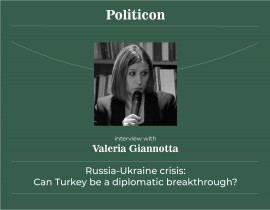
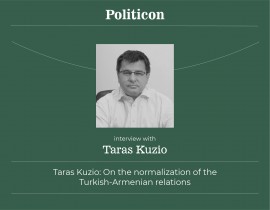

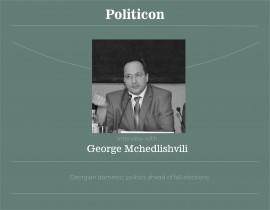
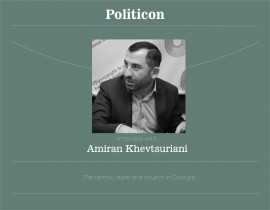

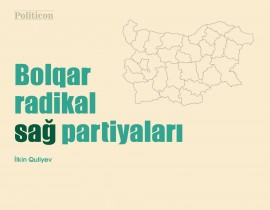
jpg-1599133320.jpg)

